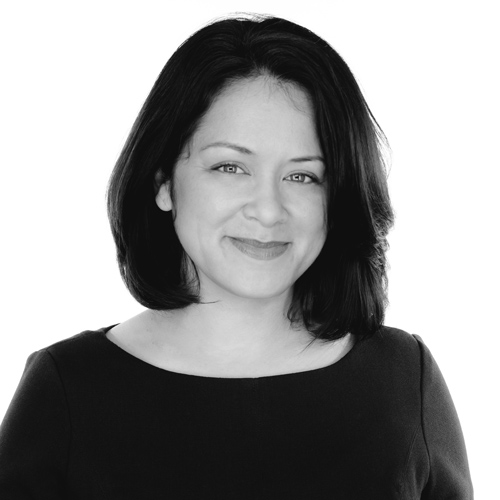Courtney Seely first set foot in a Smashburger in 2010, just one month after arriving in Denver. “I was invited to a grand opening event at a new Smashburger that was opening one block from my office,” Seely recalls.
As a concept, fast casual restaurants were just beginning to pick up speed, and Seely found herself taken with the idea of a “better burger.” She can still recite the first items she and her family tried: the Colorado burger, the smash fries, and the Häagen-Dazs shakes.
“We were immediately sold on the concept,” she says about Smashburger’s dedication to crafting made-to-order, never-frozen burgers, with locally sourced ingredients.
“I could sense from my first experience that the brand and the employees were just universally passionate about the great food they were serving and the experience they were providing to their guests.”
She spent the next several years watching the company’s progress, noting that, at the time, it didn’t have a day-to-day in-house counsel. With Smashburger rapidly growing, she knew it was going to need an in-house counsel sooner rather than later. Having previously served as an attorney at Dechert, she knew that “the fees they were spending on outside counsel would start to not make sense.”
She connected with the chief legal officer of the private equity firm that co-founded Smashburger in 2007, positioning herself for the role. Seely joined Smashburger in 2012 and became its general counsel in 2013, then the chief legal officer and corporate secretary in 2016, bringing with her a sense of purpose that’s helped Smashburger grow in a variety of ways. The legal department, for example, has since ballooned into a five-person operation, while the business’ unit count has doubled. When she joined the company, Smashburger had just opened its 200th store. Now, it’s quickly approaching 400 locations.
Perhaps that level of growth can be attributed to Seely’s level of investment. She describes Smashburger’s support center as “lean and mean,” and emphasizes how vital it is for there to be a “strong partnership between the legal team and franchise sales team.” The traditional franchise sales model involves a multi-unit development agreement and, as such, that means the legal team “remains a significant internal point of contact for our franchisees through the life cycle of their development relationship with us.”
“As they locate additional sites, we help them with their site submittal process,” Seely continues. “We review the site and have a role in the review of their lease addendum as it relates to the franchise.”
A tight, functional team, with constant contact and a degree of personalization are all key factors, and a likely indicator of why franchisees develop an interest in Smashburger. “We’ve got thirty-five active developers in the system, and I could tell you something about them all,” Seely says. “I think that’s a great thing.”
Potential franchisees may also be drawn to Smashburger’s recent partnership with Jollibee Food Corporations. In 2015, the multinational Filipino restaurant chain acquired a 40 percent interest in Smashburger, a transaction with which Seely was deeply involved. Citing the brand’s pedigree as a “global network of more than 3,000 restaurants,” she emphasizes how Jollibee and Smashburger “share the same values” regarding food quality and the guest experience.
“The team at Jollibee is made up of restaurateurs instead of analysts or financiers, so we really share a passion for the restaurant business,” she explains. “They understand the nuances around operating restaurants, and we believe they can help us achieve the best possible direction for the brand.”
That direction seems to include expanding beyond the company’s traditional franchise model. Visit an airport, casino, or university, and there’s a strong chance you might stumble into a Smashburger. The chain now boasts locations at airports in San Jose, Houston, and Toronto; universities that include Texas A&M and Notre Dame; and casinos such as Caesars Palace in Las Vegas.
“We’re in thirty-seven states and nine different countries,” Seely says. “We’ve sold territory rights for an additional three countries, and we expect openings in those locations in the near term.”
Seely is not content to rest on these laurels, however. “Today, we’re laser-focused on growing our consumer awareness,” Seely says. “Despite our expanding national and global footprint, there’s still a huge amount of whitespace in the US, in particular, for us to grow.”
But she thinks locally, as well as globally. “When I moved to Denver, I was really passionate about trying to get involved not just in the legal community, but also in the community more broadly,” Seely says.
She’s since found herself engaged with organizations that benefit young women in the area, whether that’s through her role on the Empowerment Council of The Women’s Foundation of Colorado, which aims to reduce high school dropout rates and enhance career opportunities for young women, or as a mentor to a Denver Public Schools fifth grader. Her mentoring came about through a program that pairs students with professionals in a field they find interesting.
“We’re meeting once a week in the office for an hour, and we’re putting together a project that she will then deliver to her classmates,” Seely says. “She’s passionate about Smashburger as a consumer-facing brand. She’s also got this interest, as a fifth grader, in franchising, so we’re putting together a presentation about franchising from a legal perspective.”
Smashburger will need new leaders, after all, what with so much growth. Still, Seely is clear that all the chain intends to maintain is its level of quality, no matter how much it grows. Its partnership with Jollibee is one clear indicator of that as well.
“We want to be the burger chain for the next generation of burger lovers,” Seely says.
So far, so good.


